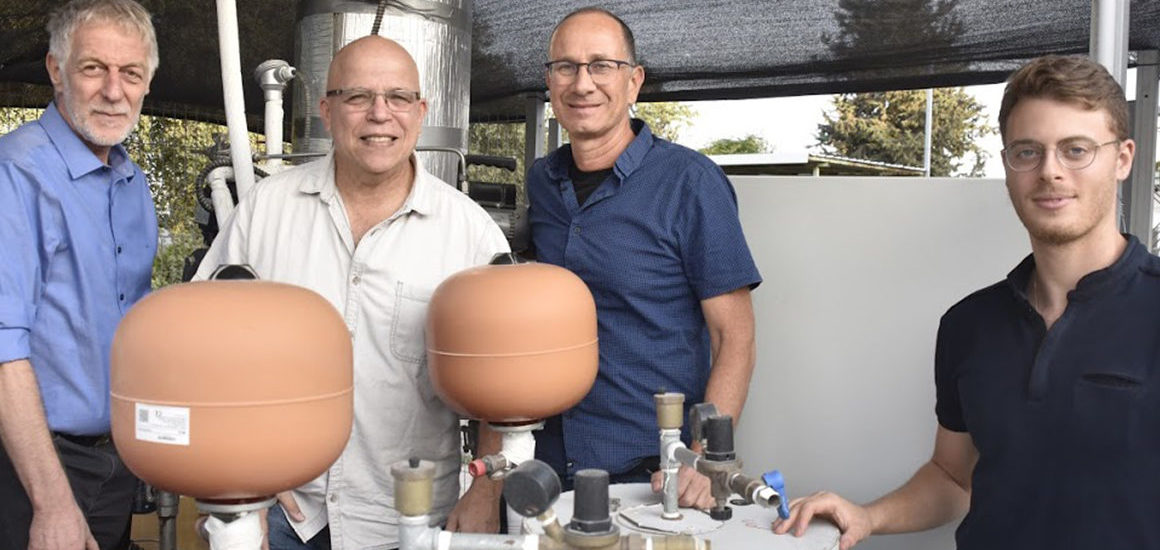Officials say that Australia’s most populous state, New South Wales, is now entirely in drought. California’s droughts carry a massive price tag, including the state’s recent investment of $2.5 billion in dams and underground storage projects. NASA has just revealed that a single season of drought in the Amazon rainforest can decrease the forest’s carbon dioxide absorption for years after rainwater returns.
To address similar grave and growing challenges, the Technion is advancing the most innovative and impactful solutions in the field of water innovation. The University’s faculty, students and alumni – known globally for their unique propensity for out-of-the box thinking and bold approaches to big problems – are tackling this issue in ways big and small.
Here are a few highlights from this remarkable work.
The father of modern agricultural drip irrigation
Technion alum Raphael Mehoudar developed an irrigation system that waters a square area, in contrast to circular-area sprinklers, and later, for the pioneering water technology firm, Netafim, he invented the drip pipes that have changed how crops are watered around the world. He also came up with the dual-quantity flushing system, which is in use today in almost every Israeli home – and in hundreds of thousands of others globally – while only an IDF cadet!
A grand plan for desalination
Despite chronic droughts, Israel has plenty of drinking water—thanks in large part to desalination technology pioneered at the Technion, which has been exported around the world. Scientists at the Technion’s Stephen and Nancy Grand Water Research Institute helped build Israel’s five water desalination plants and are now developing next-generation desalination processes. This process will allow for more cost-efficient plants that can more easily serve areas currently off the grid.
Prof. David Broday, Prof. Eran Friedler, Ilan Katz, and Liron Houber
Separating moisture from air — efficiently
Technion Profs. David Broday and Eran Friedler have developed an innovative approach to extract atmospheric moisture more efficiently as a source of drinking water. Their technology separates moisture from air and cools only the vapor, not the entire air volume, until it condenses. Their system requires 25-65% less energy for atmospheric moisture harvesting than other direct-cooling systems.
A wastewater treatment pioneer
Technion graduate Hovav Gilan is founder and CEO of WellToDo, a company launched from the Technion Technology Transfer (T3) unit. Its water treatment systems remove contaminants without generating any brine or byproducts. WellToDo focuses on removing nitrates, the world’s most common groundwater pollutant. Gilan, who developed his technology with Technion Profs. Moshe Sheintuch and Uri Matatov-Meytal, says WellToDo is “the only company doing this.”
A drop in the bucket
Research institutions are uniquely equipped to develop the knowledge and human capital to move the needle on the issues that will shape how we live for generations.
On each and every visit to the Technion, I’m blown away by the vision of the Technion’s people — on campus and among its global alumni network of alumni — and even more, by the sheer will and ingenuity with which they turn these dreams into reality.
But even among the world’s great research institutions, the Technion stands out for its daring to think differently and ability to confront problems that others dismiss as simply unsolvable. This is why I believe that the water innovation we’ve seen so far from the Technion will be a mere drop in the bucket of what’s to come.
By investing in and supporting those dreams, the American Technion Society has the opportunity to invest in our common future.



